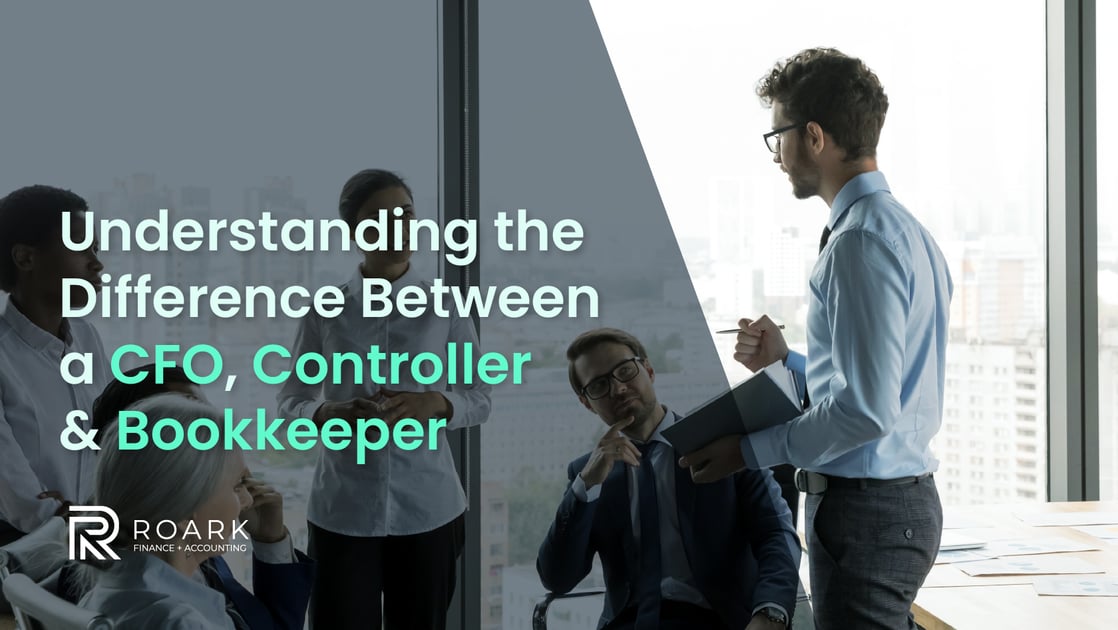June 13, 2023 •ROARK

As a business owner, you need to have a clear understanding of the financial roles within your company. Three of the most important roles are CFO, controller, and bookkeeper. Each of these positions is critical to your company's financial success, but they have different responsibilities and skill sets. Here, we will explain the differences between a CFO, controller, and bookkeeper, and help you determine which one your business needs.
Bookkeepers are the first line of defense when it comes to maintaining accurate financial records. They are responsible for recording transactions, reconciling bank statements, and generating basic financial reports. While bookkeepers do not need to have advanced degrees, they must have a solid understanding of accounting principles and software.
According to a recent survey by the National Small Business Association, 44% of small businesses handle their bookkeeping in-house. However, this may not be the most cost-effective option for your business. Consider outsourcing your bookkeeping to a reputable firm to save time and money in the long run.
Learn about ROARK's outsourced finance & accounting services
Controllers are responsible for managing the day-to-day financial operations of your company. They oversee the work of bookkeepers and are responsible for generating accurate financial reports, creating and implementing financial policies and procedures, and ensuring compliance with regulatory requirements.
A controller should have a bachelor's degree in accounting or finance and several years of experience in the field. They should also possess strong analytical and communication skills. According to our 2023 Salary Guide, a controllers salary can range from $130,000 to $315,000 depending on location and experience.
The CFO is the most senior financial executive in your company. They are responsible for providing strategic financial guidance to the CEO and the board of directors. The CFO's responsibilities include financial planning and analysis, risk management, and investor relations.
To be a successful CFO, one must have extensive financial and business experience, including a master's degree in finance or accounting. They must also possess excellent leadership, communication, and negotiation skills. According to our 2023 Salary Guide, CFO salaries can range from $180,000 to $575,000 depending on location and experience level.
Now that you understand the differences between a CFO, controller, and bookkeeper, it's important to choose the right financial role for your business. Consider the size and complexity of your organization, your budget, and your goals when making this decision.
If you are a small business owner, you may only need a part-time bookkeeper. As your business grows, you may want to consider hiring a full-time controller to manage your financial operations. If your company is large and complex, you may need a CFO to provide strategic financial guidance.
In conclusion, understanding the differences between a CFO, controller, and bookkeeper is essential for any business owner. Each of these roles plays a critical part in the success of your company, and choosing the right one can have a significant impact on your bottom line. By hiring the right financial professionals, you can ensure that your company's financial house is in order and set your business up for long-term success.
Do you find it challenging to navigate hiring the right finance and accounting experts? Don't let your business be held back by talent gaps or lengthy hiring processes. Partner with ROARK's executive search and placement services and unlock your company's full potential today.
ROARK can help you find the right professional for your company’s growth stage. Contact us to learn more about how we can take the pressure off and help you build a winning team.